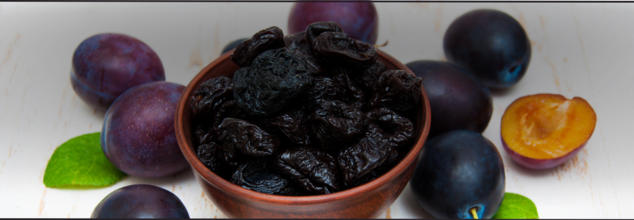
Dried vs. Fresh Plums: Which is healthier? (Credit: Canva)
Why This Seasonal Fruit Should Be Your Dietary Staple Low-Calorie Superfood
Plums are often overshadowed by flashier summer fruits like cherries and peaches, yet they offer remarkable health benefits that make them a worthy addition to your diet. This small, succulent fruit is low in calories but rich in fiber, antioxidants, and essential vitamins and minerals. Recent research published in the Journal of Nutrition highlights the myriad ways plums can enhance gut, heart, and bone health.
Plums are particularly rich in soluble fiber, which is crucial for digestion and promotes a feeling of fullness. With an average fiber content of 1 to 1.5 grams per plum, this fruit aids in maintaining regular bowel function, decreases inflammation, and helps stabilize blood sugar levels.
Expert recommend that fiber aids in digestion because the insoluble fiber bulks up stools and helps them move through the digestive tract more efficiently. This not only makes plums an excellent choice for digestive health but also contributes to weight management.
Additionally, plums provide essential nutrients like potassium and magnesium. Potassium helps balance sodium levels in the body, which is vital for maintaining healthy blood pressure. Magnesium plays a key role in bone health, making plums an excellent food choice for overall well-being.
The antioxidants found in plums, particularly anthocyanins, combat oxidative stress and improve heart health, thereby lowering the risk of chronic diseases.
Dried vs. Fresh Plums: Which is healthier?
Both fresh plums and their dehydrated counterparts—prunes—offer similar nutritional benefits, although prunes contain higher concentrations of certain nutrients. The concentrated levels of flavonoids and phenolics in prunes offer anti-inflammatory, anti-aging, and antioxidant effects. Furthermore, the combination of high fiber and sorbitol in prunes effectively balances bowel movements.
However, moderation is key. Consuming excessive amounts of plums can lead to stomach upset, and it’s essential to be cautious about vitamin K intake.
While vitamin K is vital for wound healing and bone health, individuals on blood-thinning medications should consult their healthcare provider before significantly increasing their plum consumption, as sudden spikes in vitamin K can interfere with medication efficacy.
Are Plums Good for Diabetes?
Plums can be beneficial for individuals with diabetes due to their low glycemic index and high fiber content. The fiber in plums helps to slow down digestion, preventing spikes in blood sugar levels.
However, portion control is essential, and it’s advisable to consult with a healthcare professional to tailor your diet according to your specific health needs.
Potential Disadvantages of Plums
Another aspect to consider when enjoying plums is their pits. The seed contains amygdalin, which can convert to cyanide and pose toxicity risks if swallowed. Expert suggest being extra careful when biting into or slicing up a plum. You want to try to avoid getting any of the pieces of the seed in your mouth.
How You Can Add Plums into Your Daily Diet
1. Slice fresh plums into your morning oatmeal or yogurt. The natural sweetness will enhance the flavor while adding a nutritious kick to your meal.
2. Keep dried plums (prunes) handy as a quick snack. They’re an excellent source of fiber and can help curb cravings between meals.
3. Use plums in salads or as a topping for grilled meats. Their sweet and tart flavor pairs well with savory ingredients, adding depth to your dishes.
© 2024 Bennett, Coleman & Company Limited

